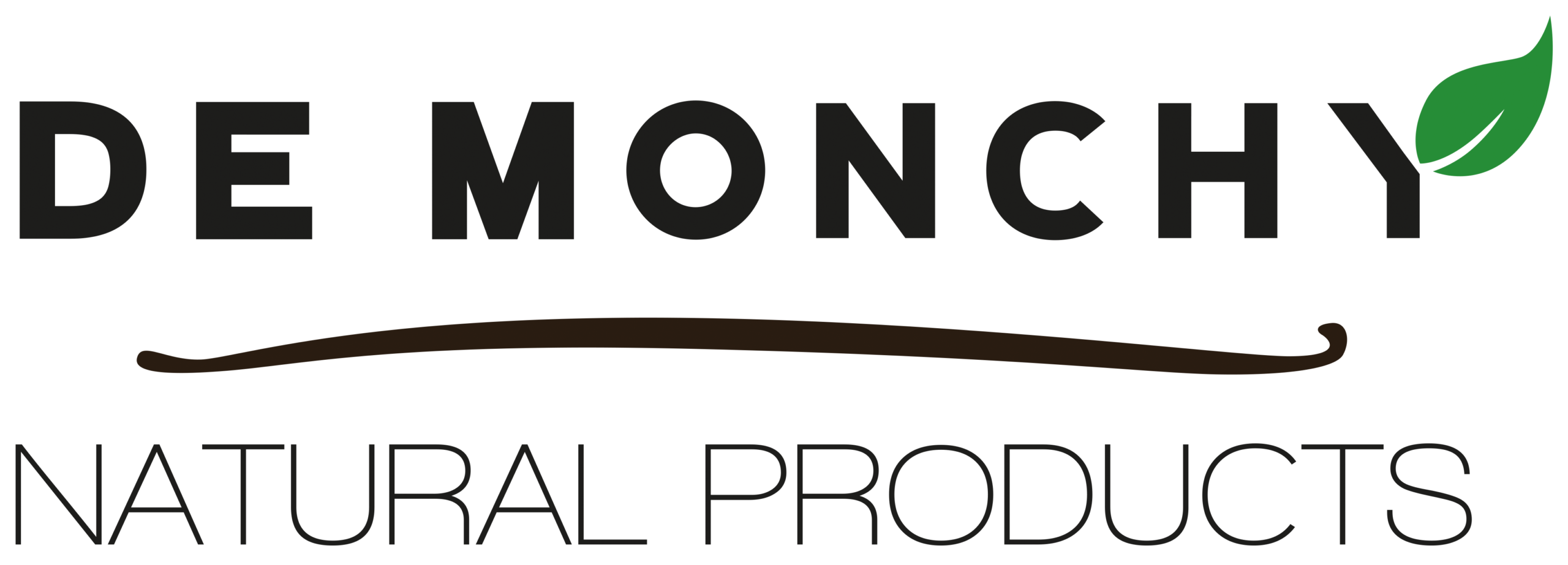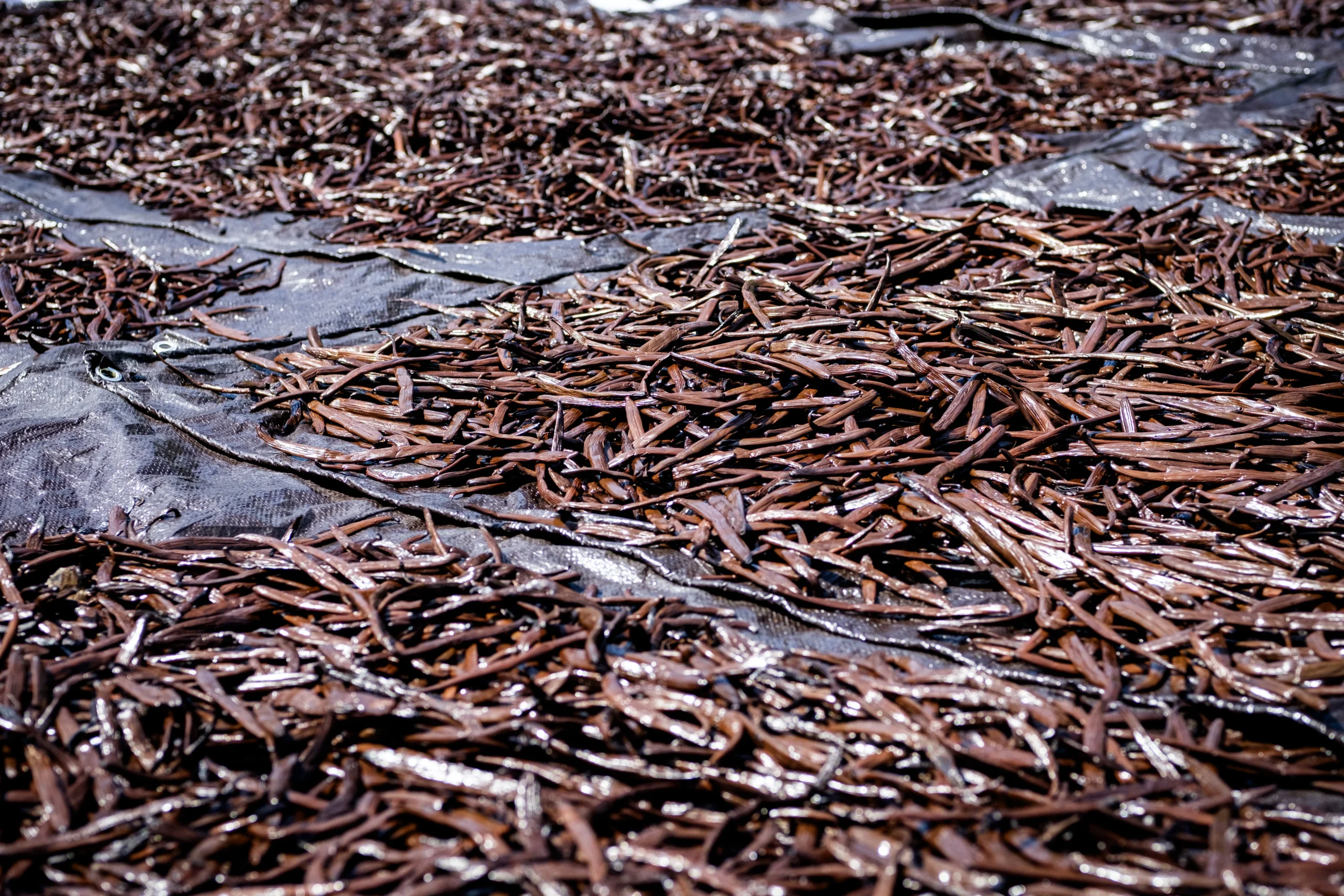Side note: we detailed and presented vanilla in an article called “Understanding vanilla”.
Among these certifications, the organic certification comes as a layer of security regarding the quality of the product, as opposed to the conventional vanilla which doesn’t show, in itself, substantial proof of a specific cultivation, harvesting or curing process.
This article will explore the key differences between organic and conventional vanilla, including their cultivation methods, quality, environmental impact, and benefits. It aims to inform businesses and consumers about the advantages and considerations of choosing organic versus conventional vanilla, fully knowing what’s at stake under the organic appellation.
Organic Vanilla: What does it mean?
When exploring vanilla offers from different vanilla suppliers or exporters, it is essential to understand the difference between organic vanilla and conventional vanilla. These distinctions not only impact the quality and flavor of the vanilla beans but also influence consumer choices and agricultural practices.
On the one hand, organic vanilla refers to vanilla beans that are grown and processed without the use of synthetic chemicals, such as pesticides or fertilizers. Instead, organic farming practices prioritize natural methods to cultivate vanilla plants. These methods include the use of compost, organic fertilizers, and natural pest control techniques, which help maintain the health of the soil and the surrounding ecosystem.
To be certified as organic, vanilla beans must meet specific standards, such as USDA Organic or EU Organic, set by organic certification bodies. These certifications ensure that the entire process, from cultivation to processing, adheres to strict guidelines prohibiting the use of synthetic substances and which constantly evolves in favor of sustainable and natural practices. For businesses and consumers seeking a pure and sustainable product, choosing an organic vanilla bean supplier is a way to support environmentally friendly practices while enjoying high-quality vanilla that is also healthier.
Conventional Vanilla
Conventional vanilla, on the other hand, is grown using traditional farming methods that may involve the use of synthetic fertilizers, pesticides, and other chemicals to increase yield and manage pests. While these practices can be efficient, they often come at the cost of soil health, biodiversity, and potentially, the flavor profile of the vanilla beans.
Conventional vanilla farming can be less expensive and more accessible, which is why it remains widespread. However, consumers and businesses should be aware of the potential environmental and health implications of conventional vanilla, especially when considering long-term sustainability.
This means that when sourcing conventional vanilla beans, it is important to select a supplier that is fully compliant with global food safety standards and is certified as such (look for FSSC22000 type of certification).
We, at De Monchy Natural Products, have seen a progressive lowering of the conventional vanilla share in our customers’ demands, that are instead favoring more sustainable, natural and ethically sourced products with certified vanilla beans.
Key Certifications standards for Organic Vanilla
For vanilla to be marketed as organic, it must be certified by recognized organizations. These certifications are essential for ensuring that the vanilla beans have been grown and processed according to organic farming standards. Common certifications include:
USDA Organic
EU Organic
The European Union’s organic certification ensures that the vanilla beans comply with European organic farming standards, which are similar to those of the USDA.
FairTrade Certification
While not exclusive to organic products, Fairtrade certification often overlaps with organic farming, ensuring that farmers receive fair prices and that sustainable practices are followed.
Choosing an organic vanilla bean supplier that holds these certifications guarantees that you are sourcing vanilla that aligns with both environmental sustainability and high-quality standards.
At De Monchy Natural Products, we consider a priority to ensure that our farmers from all origins are trained to these specifications and practices and meet the certifications standard.
Its impact on flavor profile
Organic vanilla is often celebrated for its rich, complex flavor profile. The natural farming practices used in organic cultivation—such as the use of compost and organic fertilizers—enhance the development of vanilla’s nuanced taste and aroma. Organic vanilla beans tend to exhibit a deep, full-bodied flavor with subtle notes that reflect the terroir, or the environmental conditions in which they were grown. This makes organic vanilla a preferred choice for gourmet cooking and premium products, where the quality of flavor is paramount.
Conventional vanilla, while still widely used, may not always match the depth of flavor found in organic beans. The use of synthetic fertilizers and pesticides can influence the growth process, potentially leading to variations in flavor intensity and complexity. However, conventional vanilla can still produce high-quality beans, especially when grown in optimal conditions, but it may lack some of the subtlety and richness that organic vanilla offers.
Sensory Differences and Consumer Preferences
The sensory experience of vanilla – its aroma, taste, and texture – is a key factor in consumer preference. Organic vanilla is often preferred by those who value natural and authentic flavors. The absence of synthetic chemicals not only enhances the purity of the flavor but also aligns with consumer preferences for clean, sustainably produced ingredients.
For businesses, selecting an organic vanilla bean supplier can provide a competitive edge in markets where consumers are increasingly seeking products with transparent, ethical sourcing and superior taste. Organic vanilla’s distinctive flavor makes it ideal for use in high-end culinary applications, including gourmet desserts, artisanal chocolates, and premium beverages.
In contrast, conventional vanilla may appeal to those looking for a more cost-effective option without sacrificing too much in flavor, especially in large-scale production where price can be a significant factor. However, for the highest quality and most authentic flavor, organic vanilla beans remain the preferred choice.
By understanding these differences, businesses can better cater to the growing demand for organic vanilla and ensure that they are sourcing the best quality beans to meet consumer expectations.
Why Choosing Organic Vanilla
Choosing organic vanilla over conventional options offers numerous benefits, both for businesses and consumers. Whether you are sourcing vanilla beans for a product line or selecting vanilla for personal use, understanding the advantages of organic vanilla can guide you toward making more informed, ethical, and sustainable decisions.
Meeting Market Trends and Consumer Demand
The demand for organic products has been steadily rising, with consumers becoming more conscious of the environmental and health impacts of their purchases. Organic vanilla aligns with this trend, as shoppers increasingly seek out products that are free from synthetic chemicals and produced in an environmentally responsible manner. By choosing organic vanilla, businesses can tap into this growing market, attract eco-conscious customers, and enhance their brand reputation.
Enhancing Brand Reputation and Ethical Considerations
For businesses, sourcing organic vanilla beans from a certified supplier reflects a commitment to sustainability and ethical practices. Organic certification signals to customers that the product is not only high-quality but also produced in a way that respects the environment and supports fair trade. This commitment can differentiate your brand in a competitive market, appealing to consumers who prioritize ethical sourcing and sustainability in their purchasing decisions.
Supporting Sustainable Agriculture
Choosing organic vanilla is more than just a preference for a particular flavor profile; it is a vote for sustainable agriculture. Organic vanilla farming emphasizes crop rotation, natural pest management, and the use of organic fertilizers, all of which help maintain healthy soils and reduce the need for synthetic inputs. This approach not only protects the environment but also ensures the long-term viability of vanilla farming, supporting farmers who are committed to sustainable practices.
By sourcing from an organic vanilla bean supplier, businesses contribute to the growth of sustainable agriculture, encouraging more farmers to adopt organic methods and ensuring a future supply of high-quality vanilla.



